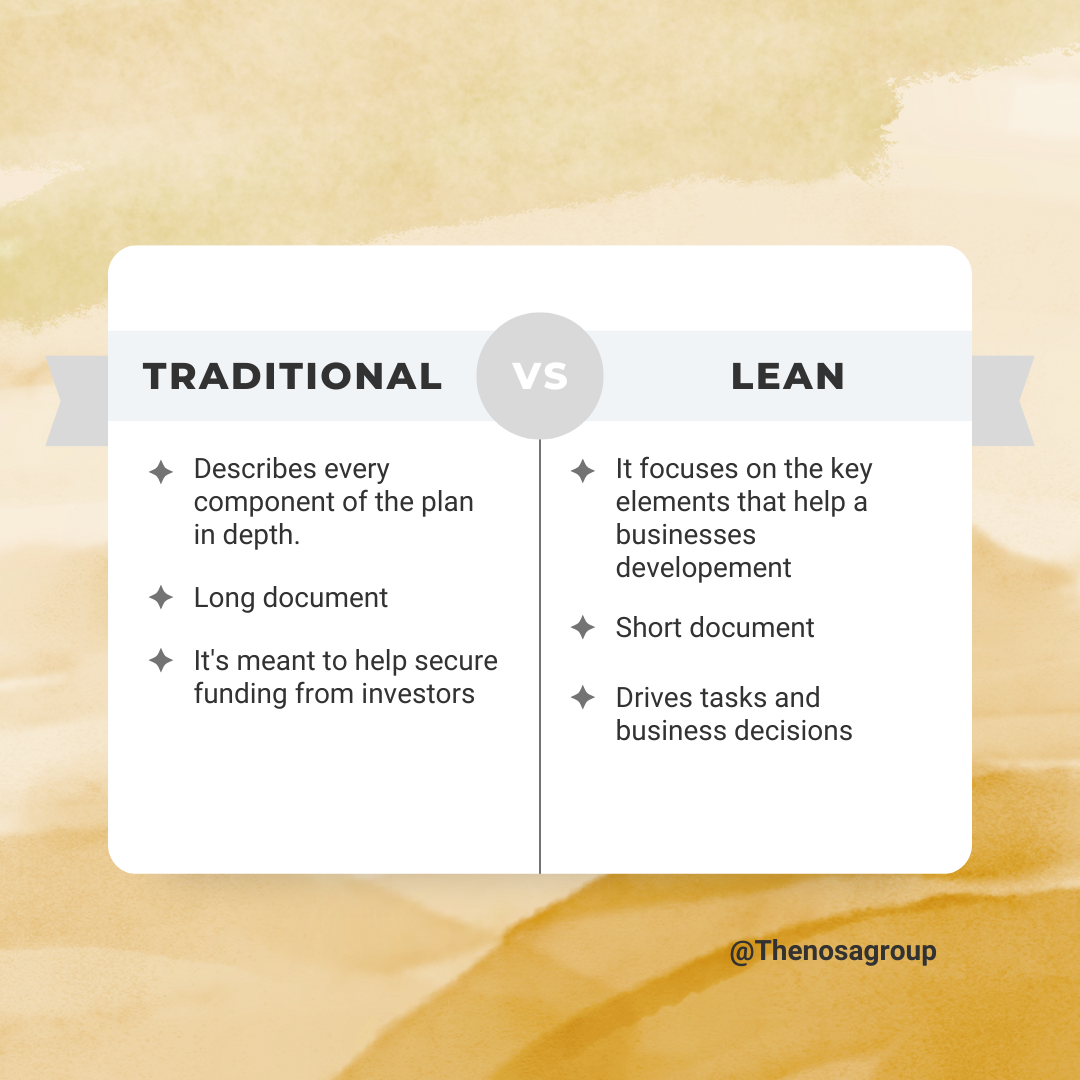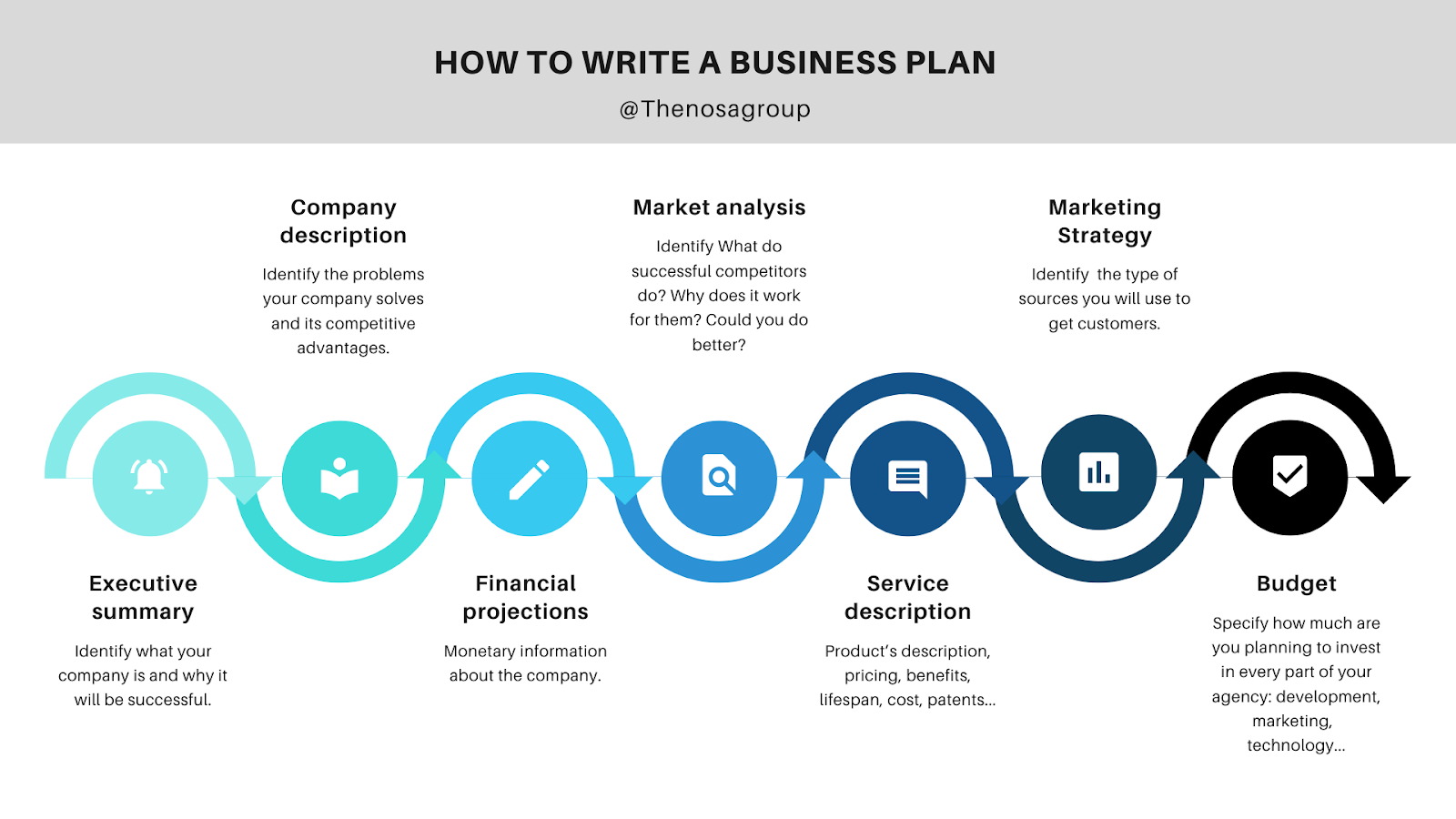Key Components of a Business Plan
Key Components of a Business Plan

What is a business plan?
A business plan is a written document that outlines your company's goals as well as the strategies you'll use to achieve them. It often examines the competitive environment of an industry, examines a market and the many client groups within it, analyzes financial planning, specifies the goods and services, and identifies business strategies for success.
The main goal of a business plan is to assisting owners in implementing ideas and investors in determining the potential profitability of the company. It is a road map for the business that provides crucial information for operational decisions, marketing plans, and financial matters.
Traditional Business Plan Vs. Lean Startup Business Plan
There are two main types of business plans. The first one is the Traditional Business Plan, which includes in-depth information about the company, and the second is the Lean Startup, which highlights all the key points in the business plan, without adding too many details.

How to write a business plan

Executive summary
Here, you'll summarize your company's key aspects and draw investors' attention by including the mission statement and a succinct synopsis of the firm. Consider it to be your elevator pitch.
Company description
This should include a general description of your company's goals, available goods or services, target market, and competitive advantages. Don't forget to provide the registered name of your company, important personnel, and location.
Financial projections
All financial data, including as balances, statements, targets, projections, possible investors, and so on, can be included here.
Market analysis
Companies can discuss their position in the market, their advantages and disadvantages, anticipated demand, and other information in this area.
There are many useful tools one can use to make a complete Market Analysis, one of them being the SWOT Matrix. This tool is designed to find the Strengths, Weaknesses, Opportunities, and Threats your company is facing regarding this area.
If you’d like to do your own SWOT analysis like a pro, check out our quick
SWOT analysis guide with a template and an illustrative example
here.
Service description
You may include all the necessary information here, such as the product's description, price, features, lifetime, cost, and patents, to help consumers understand what you are selling.
Marketing strategy
This is useful for deciding what kinds of sources you'll employ to attract new clients and retain existing ones.
Budget
Indicate the amount you want to spend on development, marketing, personnel, technology, and other areas of your firm.
We encourage you to watch our video, "Key Components of a Business Plan", here if you enjoyed this article and want to learn more about how to create your own business plan form scratch.
If you liked this post, don’t forget to share it, and let us know what you think in the comments!









